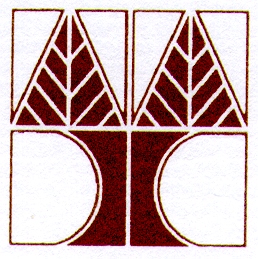You may download the Call For Papers here.
Following the tradition of previous conferences on Knowledge, Information and Creativity Support Systems, KICSS 2014 will cover all aspects of knowledge management, knowledge engineering, intelligent information systems, and creativity in an information technology context, including computational creativity and its cognitive and collaborative aspects. Papers reporting original unpublished research results on theoretical foundations, IT implementations of decision support and expert systems, as well as case studies of successful applications of the above-mentioned ideas in various fields are equally solicited.
The list of conference topics includes but is not limited to:
- Anticipatory networks, systems, and decisions
- Autonomous creative systems
- Cognitive foundations of knowledge
- Cognitive and psychological issues in creativity research
- Cognitive foundations of knowledge
- Collaborative activities in Living Labs
- Collaborative idea generation and creativity
- Collaborative knowledge creation
- Collaborative working environments fostering creativity
- Complex system modelling
- Computer supported creativity
- Creative approaches to model technological evolution
- Creative business models
- Creative conflict resolution
- Creative coordination and cooperation mechanisms
- Creative decision processes
- Creative interaction techniques
- Creative model building
- Creative reasoning and decision making
- Creative research environments and their performance
- Creative social computing
- Creative visualisation of data and knowledge
- Creativity in finance
- Creativity in augmented reality
- Creativity in health care
- Creativity in mobile applications
- Creativity in social media
- Creativity in the Cloud
- Creativity measurement
- Creativity support systems
- Creativity transfer and stimulation
- Creativity vs. rationality
- Creativity-enhancing interfaces
- Creativity-oriented information system architectures
- Decision sciences
- Decision support systems (DSS)
- Discovering opportunities, threats and challenges
- Foresight support systems (FSS)
- Future Internet and knowledge-based society
- Future exploration and modelling
- Future perspectives of knowledge, information, and creativity support
- Game-theoretical aspects of knowledge
- General creative systems (GCS)
- Group recommendation, and advise
- Heuristics and general problem solving
- Identifying real options in complex business environments
- Information fusion
- Information quality
- Intelligent analysis of Big Data
- Knowledge extraction, creation, and acquisition
- Knowledge in multi-agent systems
- Knowledge integration
- Knowledge management in business, industry, and administration
- Knowledge representation and reasoning
- Knowledge verification and validation
- Living Lab support systems (LLSS)
- Machine learning and creativity
- Malicious creativity in the web, its discovery and remedy
- Mathematical models of creative processes
- Multi- and interdisciplinary approaches in creativity research
- Multicriteria decision making
- Natural language analysis
- Non-monotonic reasoning
- Ontology creation and management
- Open innovation
- Organizational learning
- Preference modelling
- Reasoning about knowledge
- Recommender systems
- Scientific information management
- Search for a compromise in multicriteria decision making and collaborative games
- Social Computing
- Social factors of collaborative creativity
- Software-based stimulation of creativity
- Supervised and semi-supervised learning
- Trust modeling
- Uncertainty modelling
- Virtual environment design
- Visual Analytics and Intelligent User Interfaces
- Web intelligence tools
- World models
Submission of Papers
Regular papers on all the above topics should be formatted according to the Springer CS Proceedings (LNCS) format and should not exceed 12 pages. Short and demo papers as well as research-in-progress reports should not exceed 6 pages according to the above format. The KICSS 2014 papers can be submitted via Easychair (the submission link is now active only for Short papers, Demo papers, Industry papers and Research-in-progress reports).
Submissions that overlap substantially with any other papers printed, submitted, or accepted for publication or presentation elsewhere are not allowed.
The KICSS'2014 Post-Proceedings will be published in the Springer Series: Advances in Intelligent Systems and Computing (AISC), ISSN 2194-5357. AISC is indexed by ISI Proceedings, SCOPUS, EICompendex, Zentralblatt Math, DBLP, MetaPress, Ulrich's, Springerlink, see more here. They will contain all the revised regular papers and - following an extension - a selection of research-in-progress reports as well as short papers.
The authors of the selected best papers presented at the Conference will be invited to submit the revised and extended versions of their contributions to special issues of high-rank scientific journals.
The best papers written and presented by PhD and MSc students will be awarded the KICSS'2014 Prizes. Eligible authors should provide a proof of their full-time student status with their registration and be no more than 35 years old at the time of the conference.




